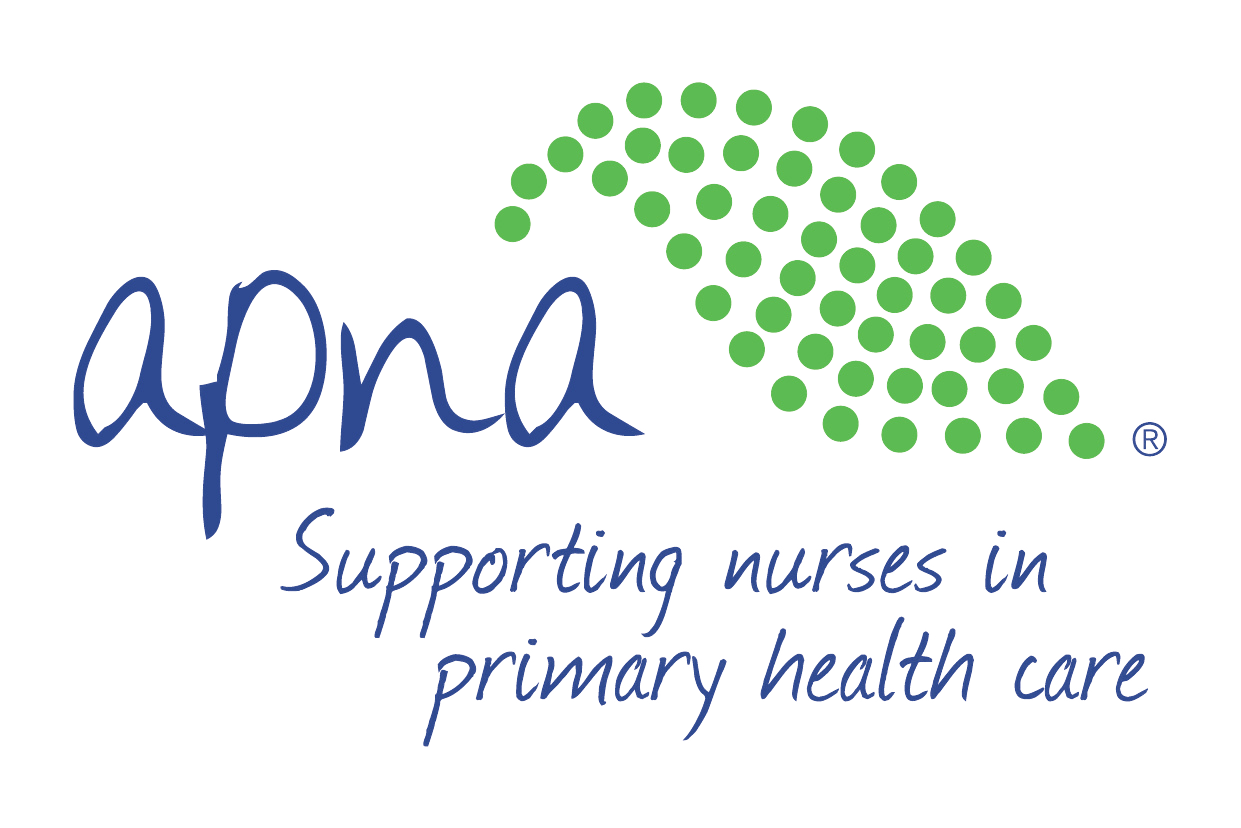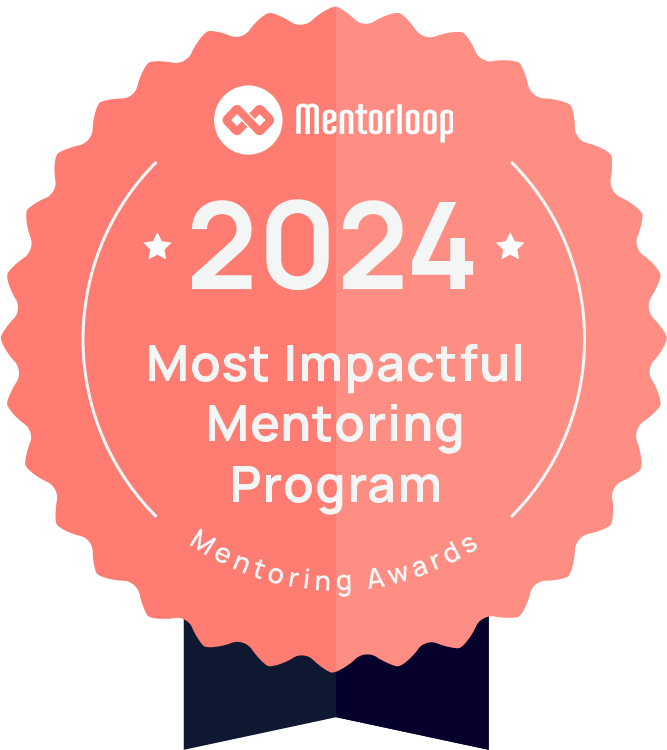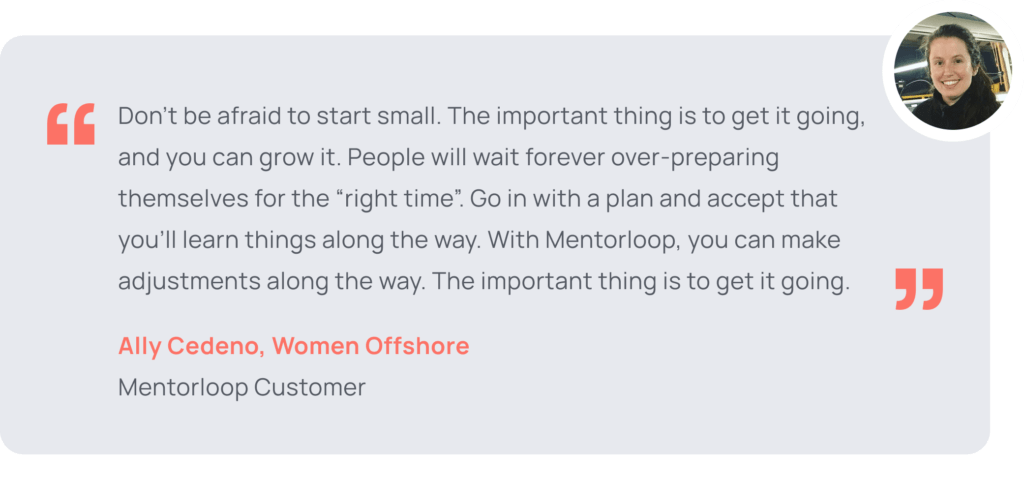
APNA Builds a National Mentoring Program for Primary Healthcare Nurses
with Rebekah Cox
Project Manager Program Solutions Manager,
APNA

with Rebekah Cox
Project Manager Program Solutions Manager,
APNA

Before engaging Mentorloop, one of our biggest challenges was ensuring that nurses in various locations—especially those in rural and remote areas—could connect with mentors equitably. We needed a way to facilitate these connections without manually establishing them, while also creating a centralized platform to communicate with participants, share resources, and build a community of practice.
Primary healthcare is practiced outside hospital settings, including community health, general practice, and rural/remote locations. Nurses entering these areas are often overwhelmed and unprepared for the complexities they encounter. With federal government funding, we created Australia’s first national Transition to Practice program for primary healthcare nurses in 2015, with a key component being mentoring. Initially, we managed the process manually, but as the program grew, so did the need for an efficient, scalable solution, which led us to Mentorloop.
The mentoring component of the Transition to Practice program has had a profound impact on nurses throughout Australia, connecting over 500 nurses nationally, including many in rural and remote areas. Through our program, we’ve consistently maintained satisfaction rates of 80-90%.
Mentors and mentees have benefited greatly, with many mentees returning as mentors in subsequent programs. We’ve seen statistically significant improvements in the knowledge, skills, and confidence of primary healthcare nurses.
"This program has not only helped retain nurses in the profession—especially those who might have otherwise disengaged due to burnout—but has also provided opportunities for mentors to expand their own clinical and non-clinical skills."
One participant shared how the program reignited their passion for the profession, providing a platform for nurses to give back while enhancing their own careers.
Our goal is to provide equal access to mentoring opportunities for nurses, regardless of location.
"With Mentorloop, we can ensure that even nurses in rural and remote areas—often isolated in their practice—receive the support they need."
This is crucial in environments where access to colleagues for advice and guidance is limited.
In addition to our government-funded program, we created a secondary initiative to ensure that nurses can still access support even when our primary program is unavailable or oversubscribed. Year-round availability of our programs ensures that participants can access mentoring when and where they need it most.
Since 2015, we have been committed to building a strong culture of mentoring within the Transition to Practice program. This initiative not only supports the next generation of primary healthcare nurses but also upskills and empowers our current nursing workforce. Many mentors enter the program without seeing themselves as leaders, but through their experience, they gain the confidence and skills to take the next step in their careers—whether that’s pursuing a promotion or launching a project they’ve been considering.
Our program has fostered a network of highly skilled professionals across Australia, with many participants continuing their mentoring relationships even after the program formally concludes. By advocating for and supporting these nurses, we are building a highly talented professional network that will continue to grow and strengthen the primary healthcare sector.
As we look ahead, we plan to continue expanding our mentoring and Transition to Practice programs as long as there’s a need to support nurses entering primary healthcare. We aim to evolve the mentoring component by further upskilling experienced mentors and helping them develop leadership skills to support other mentors within the program. By focusing on continuous improvement and development, we hope to ensure that our mentoring program continues to provide value for both new nurses and experienced mentors.
Our vision is to sustain a supportive, skilled network of primary healthcare nurses across Australia, ensuring they have access to the mentorship and resources they need to thrive in their careers.

Project Manager Program Solutions Manager, APNA
Share this Article
Join the loop

We've been able to connect over 500 nurses nationally, including many in rural and remote areas - and we’ve consistently maintained satisfaction rates of 80-90%.
– Rebekah Cox, Project Manager Program Solutions Manager, APNA

What Role Does Equity and Equality Play in Your Mentoring Program?
The right mentoring program should level the playing field to empower entire cohorts of people: workplaces, member associations, social groups and educational institutions. Equality should be a cherished value so that every individual can thrive—whoever they are, whatever their background, however they worship or whomever they love. But we can’t arrive at equality without it’s often forgotten partner, equity.

What does a Mentoring Program Coordinator do?
Being a Mentoring Program Coordinator is an incredibly rewarding experience that positively impacts the lives of many. And while mentoring programs don’t fully run themselves (even though Mentorloop can do a great deal of the heavy lifting!), they do require a point of contact that can steer the program in the right direction for the organisation that is running one.

Building Quality Feedback Into Mentoring Relationships
This is Part 8 of our 10-part series on the 10 Key Qualities and Habits of a Highly Effective Mentor.
In this post, we’ll look at how mentors can successfully build quality feedback into their mentoring. Quality feedback is priceless because it clarifies expectations, helps people learn from their mistakes, and builds confidence. It also allows mentees to more effectively take what their mentors say and turn it into action.

